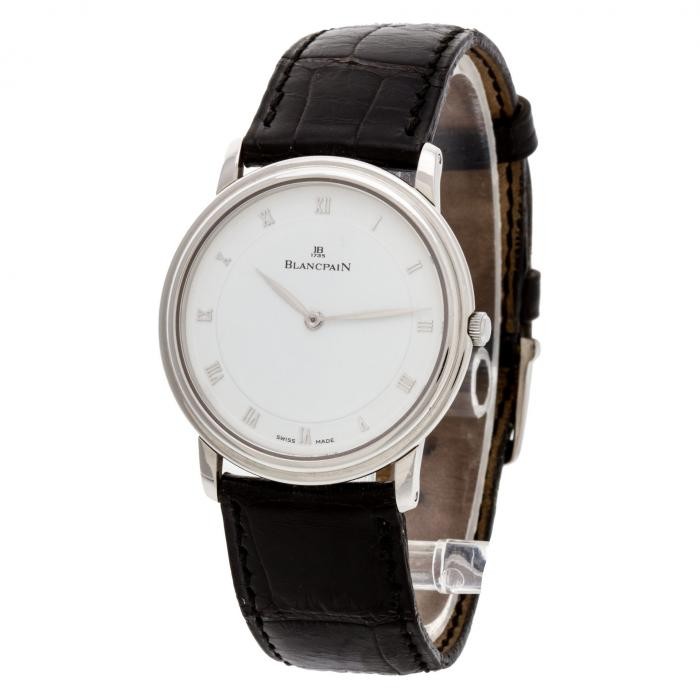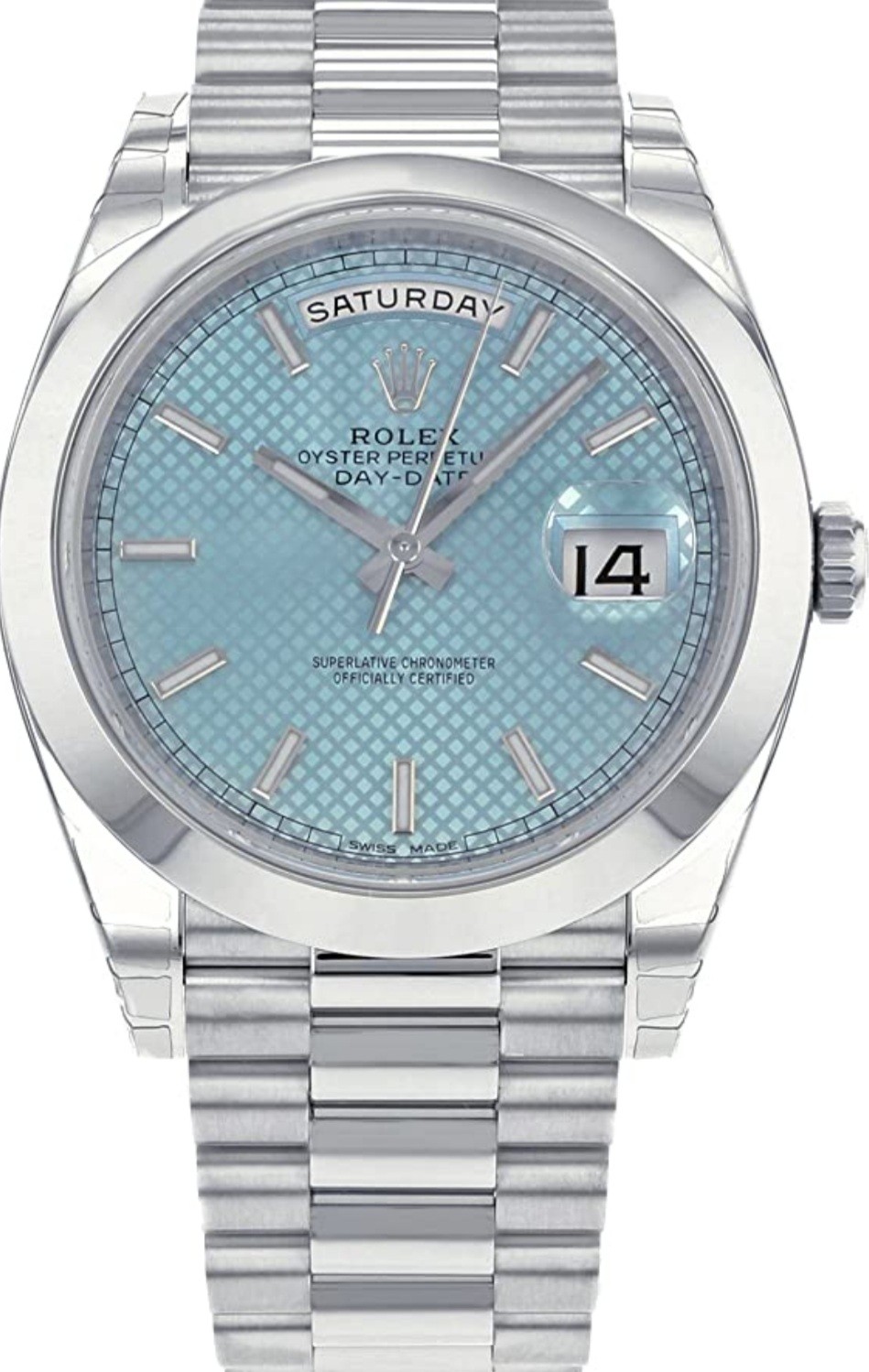Watches - another OCD problem
-
yeah. the sales staff and I were having a chat about the silver. it really comes down to personal preference at the end of the day. I did mention that it was uncommon to have silver on watches and you don't see it too often, like the zenith @Graeme posted. they did mention that Tudor has added alloys to make sure it wouldn't tarnish. I also did mention that I do like my silver ageing/ oxidising as shown by the goros I was wearing.
@Anesthetist that is one of the best colour ways out there of the BB
-
I think more than the aesthetics of silver oxidation, I'd be concerned with the wear and tear. Silver's pretty soft and watches get banged around a lot. Ok, maybe that's just mine, but still.
Of course, gold is even softer, and that's been used for watches since forever, so maybe I'm completely off base.
-
The advantage of platinum is that, unlike gold, it does not wear out. The molecules just shift but are not lost. Anyway, it's heavier than gold. Wearing platinum is said to be incomparable.

-
The platinum Rolex (with the light blue dial) are super heavy.
@Eisenherz - Can you give precisions on what you wrote reg. Pl vs Au? I'm not sure I understand. Thanks.
-
Gold loses atoms while wearing it rubs off, so to speak. This does not happen with platinum. Here the atoms are just shifting back and forth while wearing. They do not leave their atomic compound. At some point (in 1000 years) gold disappeared through wear, platinum never. Is that too much physics? Sorry!
-
-
I supposed 925 silver is made tougher than pure silver because of the alloys used. As compared to 950 and 995 which are more uncommon, 925 with 7.5 alloy is much strong than the latter.
in saying that though, I remember regretting choosing white gold over platinum for my ex wedding ring, which I regretted
(not the ring):P, because of how soft white gold was and the scratches that came along compared to platinum, which I knew to be harder than all of the above. -
Based on my wife's rings, platinum will get light scratches and eventually go from a polished finish to a satin finish, but it's far more durable than gold. Her rings look new still and my gold wedding ring is developing some worryingly thin spots. Though to be fair, my ring is secondhand and a few decades older.
-
@Eisenherz - Do you have a name for this phenomenon? Never heard of it & would like to look into it. There are many gold artifacts dated thousands of years old, so I’m curious.
-
there is no term. the atomic bond is very strong with platinum.
gold does not disappear by itself but it stains off when you wear it, platinum does not -
If you're really looking for hard and scratch resistant, there have been a couple of watched over the years made out of tungsten, which is extremely hard and very heavy. Lum-Tec did a run of them years ago, but I heard they were a huge hassle, because of the difficulties with tooling such a hard material.
-
Gold loses atoms while wearing it rubs off, so to speak. This does not happen with platinum. Here the atoms are just shifting back and forth while wearing. They do not leave their atomic compound. At some point (in 1000 years) gold disappeared through wear, platinum never. Is that too much physics? Sorry!
Thats awesome! Thanks for sharing! [emoji41]
Sent from my iPhone using Tapatalk
-
at this rate, I'll settle for vibranium. it's stronger than steel and 1/3 of the weight. it is also vibration absorbent.


-
Hmm… OK. ::)
With all due respect, this sounds like an urban legend. I'm not sure that the metallic bond of gold is or not weaker than that of platinum. (There's basically no atomic bonding for gold or platinum under normal condition as both are non reactive.)
In any case, I don't think it has any different impact over a normal human life. To say that platinum is harder than gold is confusing because gold is never used in its pure state and its alloyed forms are reasonably hard. Pure gold is more malleable than pure platinum but pure platinum is actually more ductile than pure gold, so it depends what we mean by "hard". Pure gold will show knocks more readily than pure platinum, but a platinum ring or bangle is more likely to stretch. Under normal circumstances, neither will magically evaporate or dissolve over a few thousand years.




